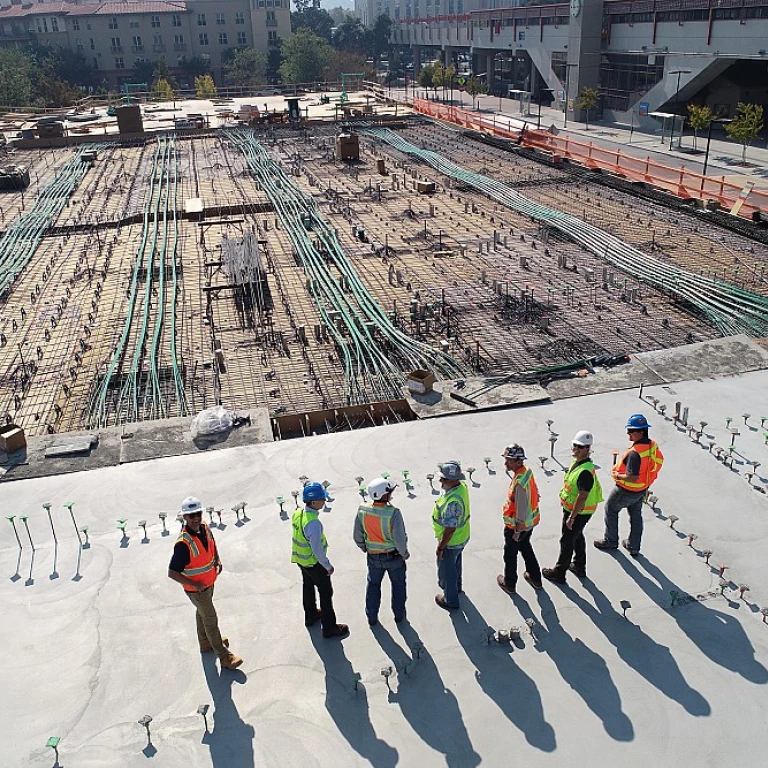
Understanding the Importance of Teamwork in Tech
Why Teamwork Matters in Tech
In the fast-paced world of technology, the collaborative efforts of a team are paramount for the success of any project. The synergy between team members allows for the integration of various skills, ranging from problem solving to effective time management, facilitating the creation of quality work and innovative solutions. Team performance is not just about individual contributions but also about how effectively team members can communicate and work together to achieve common goals.
Performance reviews in tech are an essential tool for assessing how well teamwork contributes to achieving business objectives. By evaluating skills like communication, decision making, and consistency in task execution, employers can provide constructive feedback that helps employees improve and grow in their roles. Review comments and feedback should highlight areas of improvement as well as positive contributions to the work environment.
It's important to recognize the role of feedback not only as a performance management tool but also as a catalyst for employee engagement and development. Constructive feedback, combined with example phrases and review examples, can help employees identify specific areas for improvement and encourage them to harness their strengths.
Assessing teamwork brings its own set of challenges, such as distinguishing individual contributions from team efforts, ensuring fairness, and fostering a culture of openness and transparency. For more insights on factors that impact teamwork and performance reviews, read about factors impacting teamwork and performance reviews.
Crafting Effective Teamwork Performance Review Phrases
Constructive Review Approaches for Tech Teams
Crafting effective teamwork performance review phrases is essential for a meaningful assessment of team success. It's about articulating the employee's skills, accomplishments, and areas for improvement in a way that motivates and encourages development.- Communication Skills: Comments should highlight both the employee's positive contributions and areas improvement in communication. For example, "Consistently provides clear and constructive feedback during team meetings," underscores effective verbal interactions.
- Collaboration and Engagement: Phrases assessing team dynamics can note how an employee engages with other team members. "Fosters a cooperative work environment by consistently engaging and supporting all team members," is an example phrase that emphasizes positive influence within the team.
- Decision Making and Problem Solving: Recognize the employee's role in problem solving and decision making. For instance, "Demonstrates strong decision making abilities, providing efficient solutions to team challenges," acknowledges their contribution to quality work in complex situations.
- Task Management and Performance: Evaluation should also consider task execution and time management. Consider using "Manages tasks effectively, ensuring high performance and timely completion of projects," to illustrate efficiency and dedication.
- Openness to Feedback and Improvement: Address how the employee responds to feedback. "Welcomes constructive feedback and shows a commitment to improving performance," promotes a culture of growth and continuous enhancement.
Common Challenges in Evaluating Teamwork
Tackling Evaluation Complexities Across Teams
Evaluating teamwork is no small feat and presents a unique set of challenges that can complicate performance reviews. Consistently assessing team dynamics requires a multifaceted approach to understand how each team member collaborates, communicates, and contributes to the team's overall success. Accurate evaluations don’t just stop at what individual team members achieve, but delve into how they achieve it through skills like communication and time management. One significant challenge is the subjective nature of feedback. While some team members may thrive on constructive feedback, others might perceive it as a critique of their work environment. Ensuring that feedback is constructive and targets specific areas for improvement without damaging morale is crucial. A further complication arises from balancing individual performance with team performance. It is essential to use example phrases in performance reviews that clearly differentiate between an employee's personal achievements and their contribution to the team. Effective review comments can help highlight how an employee’s decision-making and problem-solving skills enhance team success, contributing to quality work output. Moreover, assessing team dynamics is hindered by interpersonal variations. Since every team member brings a different set of skills and communication styles to the table, reviews have to be personalized and respectful of these differences, which adds layers of complexity to the standard performance management process. To make this process smoother, incorporating tools that facilitate continuous feedback and review examples can be beneficial. This not only aids in identifying pervasive challenges but also assists in implementing timely improvements that promote positive employee engagement. Finally, concerns about bias cannot be overlooked. Performance reviews should be transparent, focusing on concrete achievements and constructive paths to improvement. Properly crafted review phrases can help mitigate bias by spotlighting factual performance metrics rather than subjective opinions. Understanding these evaluation challenges in depth helps in crafting more effective teamwork performance review phrases that align with organisational goals and work towards refining team development. To gain further insights into managing team dynamics and employee performance efficiently, explore more resources to enhance performance management protocols. Visit this insightful article for a broader perspective on maintaining optimal team environments across the board.Examples of Teamwork Performance Review Phrases
Reference Examples for Performance Assessment
When evaluating an employee's ability to function effectively within a team, it is crucial to have a robust set of review phrases at your disposal. These examples can help highlight an employee's strengths in areas such as communication, problem-solving, and collaboration.- Positive Assessment Phrases:
- "Consistently exhibits strong communication skills in team settings, fostering a collaborative work environment."
- "Demonstrates exceptional time management and consistently meets project deadlines, contributing significantly to team success."
- "Effectively helps team members address challenges, providing constructive feedback and promoting continuous improvement."
- Constructive Feedback Phrases:
- "Could benefit from enhancing communication skills to improve team performance and engagement."
- "Encouraged to develop stronger decision-making abilities to contribute to more effective team dynamics."
- "Suggested to actively participate in team discussions to enhance contribution to quality work outcomes."
- Noteworthy Examples:
- When an employee displays both leadership and cooperation, you might use phrases like, "Exemplifies leadership through proactive engagement with team tasks and consistent support for fellow team members."
- If an employee provides innovative solutions to complex problems, consider "Demonstrably applies innovative problem-solving techniques to improve team performance outcomes."
Incorporating Feedback into Team Development
Integrating Constructive Feedback for Team Growth
Incorporating feedback effectively into team development is a pivotal step in optimizing overall performance. To ensure feedback is not only heard but also translated into action, it's important to follow a structured approach. Establishing a Culture of Open Communication- Encourage team members to voice their insights and observations in a supportive work environment. This lays the groundwork for trust and mutual respect, which are essential for effective feedback.
- Positive comments should be consistently used to underscore strengths and motivate employees. Recognize quality work and areas where team success is prevalent.
- Constructive feedback can serve as a catalyst for professional growth. When framing review phrases, highlight both achievements and skill gaps.
- Example phrases focused on performance improvement might include: "Your proactive decision making has greatly contributed to our project's success", or "Improving time management will help balance multiple tasks more efficiently".
- Engage employee members in regular review examples where they can reflect on their performance, discussing improvements and positive outcomes.
- Help team members identify specific areas of improvement, reinforcing communication skills that enhance team dynamics.
- Leaders play a crucial role in fostering a culture where feedback is embraced. Their involvement in performance reviews should focus on both validation and constructive guidance.
- Training sessions and workshops are helpful tools in developing these leadership skills, enhancing both employee engagement and the overall team performance.













